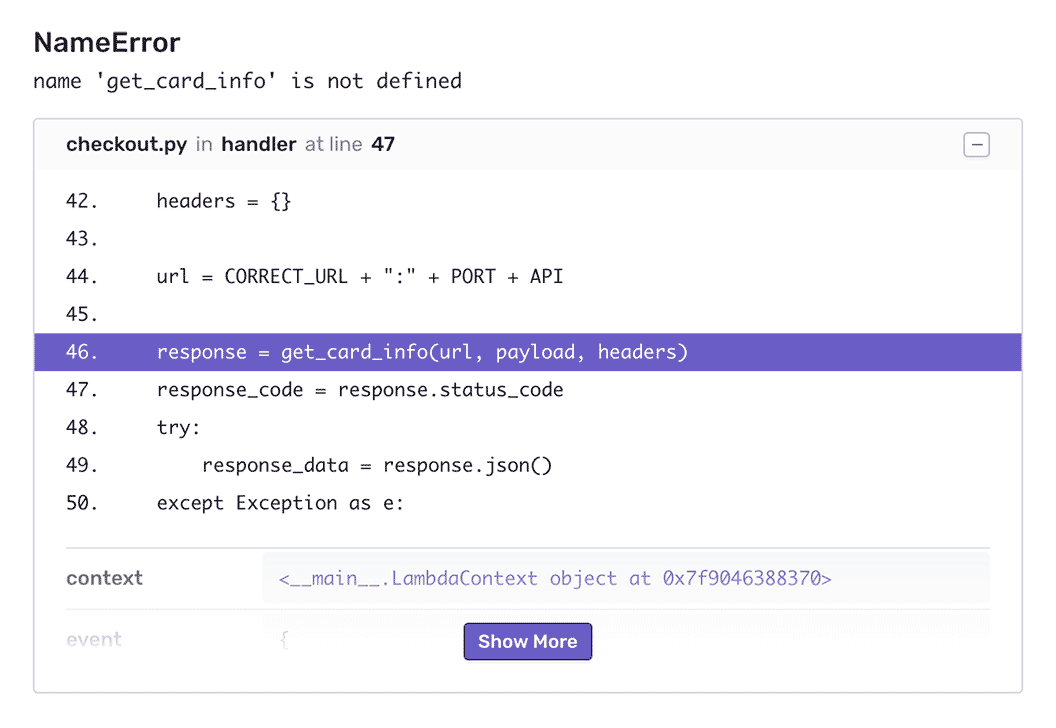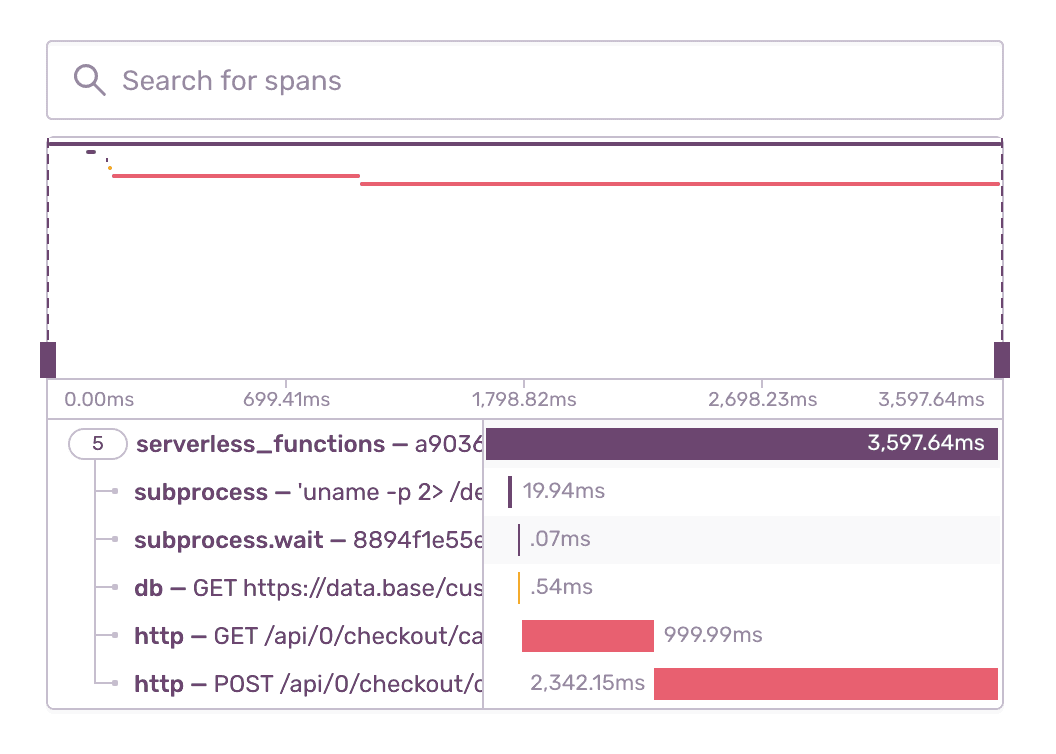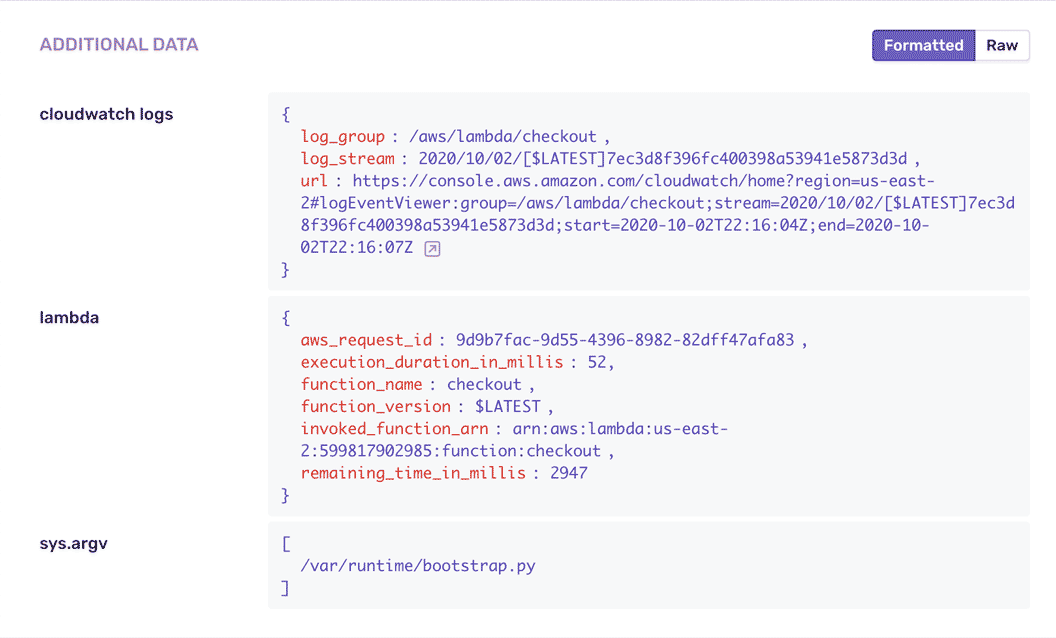
Sentry for Node.js on Google Cloud Functions
Using Sentry with Google Cloud Functions and Node.js makes debugging as painless as possible, so you can keep everything up and running.
Getting Started is Simple
Add @sentry/serverless as a dependency to package.json:
"@sentry/serverless": "*"
Then set up Sentry error logging for a GCP Cloud Function:
const Sentry = require("@sentry/serverless"); Sentry.GCPFunction.init({ dsn: "https://<key>@sentry.io/<project>", tracesSampleRate: 1.0, }); exports.helloHttp = Sentry.GCPFunction.wrapHttpFunction((req, res) => { throw new Error('oh, hello there!'); });
Check our documentation for the latest instructions.
See all platformsMore than 150K Organizations Trust Sentry with Their Application Monitoring

Code-Level Visibility
View stack traces on issues, user-agent information, and all the metadata around an issue for all the context needed to resolve the issue.

Quickly Identify Function Latencies
Trace those ten-second page loads to poor-performing API calls and slow database queries. The event detail waterfall visually highlights what calls are giving your customers a poor experience.

Fill in the Gaps
See what happened leading up to the issue. Get function execution details including function metadata, execution time, Amazon Resource Name, and function identity.